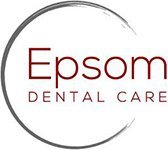Importance of Oral Hygiene

Maintaining white teeth is not the only goal of good oral hygiene — it’s about protecting your health, confidence, and quality of life. You might brush your teeth every day, but how often do you stop and think about why you do it?
Oral hygiene plays a central role in your overall well-being, and ignoring it may result in more than just bad breath or a few cavities. It’s easy to overlook the basics when life gets busy — skipping floss here, brushing for only 20 seconds there.
But small habits done consistently can make a world of difference. You don’t need perfection; you need intention.
Let’s explore why oral hygiene matters, how it impacts more than just your teeth, and how you can take practical steps to look after your smile — and your health — every day.
It All Starts in the Mouth
Your mouth is a gateway to the rest of your body. When you take care of it, you’re doing more than maintaining your appearance — you’re keeping harmful bacteria at bay.
When plaque builds up and isn’t removed, it hardens into tartar and harbours bacteria that can trigger gum disease. Over time, that inflammation can spread beyond your gums and impact your heart, lungs, and other organs by entering your bloodstream.
Inadequate dental care has been connected to significant health problems such as:
- Cardiovascular disease
- Respiratory infections
- Diabetes complications
- Pregnancy complications, including low birth weight
- Alzheimer’s disease
That might sound alarming, and it should be. But the silver lining is that most of these issues are preventable with daily care and regular check-ups.
You don’t need expensive products or complicated routines — just a little consistency and awareness.
Small Habits, Big Results
Let’s talk about what good oral hygiene looks like. It’s not glamorous, but it’s powerful.
- Food and plaque can be removed from your teeth by using fluoride toothpaste twice a day.
- Flossing daily is essential. It gets into those tight spots between your teeth that your brush can’t reach.
- Rinsing with antibacterial mouthwash can help eliminate bacteria that cause foul breath and gum disease.
- Regular dental check-ups help catch issues early — before they turn painful or expensive.
Here’s the thing: your mouth doesn’t need perfection. It needs care.
Even if your habits haven’t been great in the past, it’s never too late to improve. You don’t have to overhaul your entire life — start with one better decision each day.
Your Confidence Matters Too
Oral hygiene also affects your self-esteem. When your mouth is healthy, you smile more. You speak with ease. You eat what you want without wincing.
These small moments — laughing without covering your mouth, ordering your favourite food without fear — are the building blocks of confidence. When your oral hygiene slips, your confidence often suffers as a result.
Bad breath, discoloured teeth, or visible decay can cause you to withdraw, speak less, or avoid social situations. You deserve better than that. And with a bit of care, you can feel proud of your smile again.
Gum Health: The Quiet Cornerstone
Gums are often overlooked, but they’re just as important as your teeth. Healthy gums keep your teeth stable and supported.
If they become inflamed or infected (a condition known as gingivitis), it can develop into periodontitis, which is more challenging to treat and can ultimately result in tooth loss.
You may not notice early signs — minor bleeding when you brush or mild redness — but that’s the best time to act. Don’t ignore what seems like a minor irritation. Your gums are trying to tell you something.

Oral Hygiene for Every Stage of Life
Regardless of your age, oral hygiene plays a distinct role in every phase of life.
- Children build lifelong habits early. Helping your child brush and floss and visiting the dentist regularly sets the stage for strong, healthy teeth in adulthood.
- Teens and young adults face risks from sugar, braces, and changing routines. This is when habits tend to shift — and sometimes, fall apart. It’s a good time to reinforce the basics.
- Adults may begin to notice the effects of neglect, including sensitivity, decay, and gum issues. This is also a period when stress and diet can take a toll.
- Older adults often experience dry mouth and gum recession or require dentures or implants. Oral hygiene remains just as crucial, if not more.
Whatever stage you’re in, your routine should adapt to your needs — but the core habits remain the same.
Making Oral Hygiene Manageable
If you struggle to maintain consistency, you are not alone. Life gets hectic.
But oral hygiene doesn’t have to be a long, exhausting chore. You can make it easier by:
- Setting reminders on your phone to brush and floss
- Keeping your toothbrush visible to nudge you into action
- Using floss picks or interdental brushes if string floss feels frustrating
- Rewarding yourself for keeping up the habit — even a small treat or checkmark on a habit tracker can boost motivation
The goal is progress, not perfection. Even 10% more effort than yesterday is worth celebrating.
You Deserve a Healthy Smile
Oral hygiene is a daily act of self-respect. It’s not about vanity or ticking a box — it’s about protecting your body, your self-esteem, and your future.
You don’t have to wait for pain to take it seriously. Prevention is always easier — and more comfortable — than treatment.
So, take a moment today. Check in with yourself. Have you flossed? Brushed properly? When’s your next dental visit?
And if it’s been a while, don’t stress. Just start. One brush, one floss, one appointment — that’s how long-term health is built.
Oral Hygiene Tips in Belmont WA
If you’re ready to take charge of your oral health, your local dental team is here to support you. Don’t wait for a problem to show up. Make oral hygiene a priority — your future self will thank you.
Book your check-up today at Epsom Dental Care and rediscover the confidence a healthy smile can bring.
Call your Belmont WA dentist at (08) 9478 2349 or request your appointment online.
Visit us at 5/132 Epsom Ave in Belmont WA.

